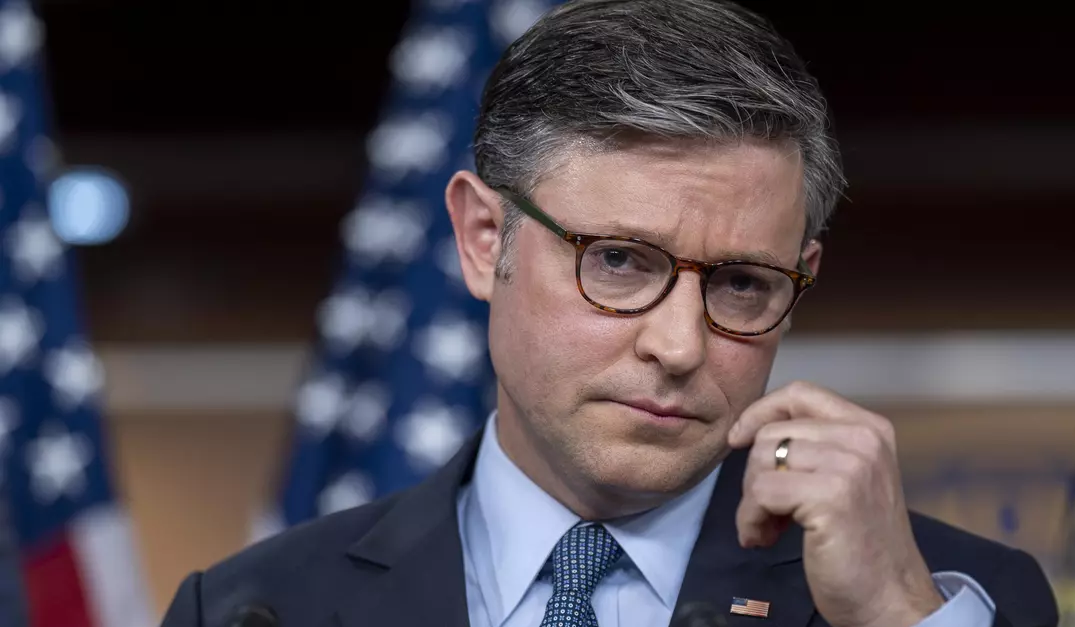Congress’ sprint to avert a government shutdown kicked off with the unveiling Tuesday of the latest short-term funding patch, which is crammed with disaster aid, economic assistance for farmers and legislation that could help attract the Washington Commanders back to the District.
But the road to passing the stopgap bill, or continuing resolution as it is known on Capitol Hill, won’t be easy for House Speaker Mike Johnson, Louisiana Republican, as he braces for a wave of defections from House Republicans. Congress has until Friday to avoid a government shutdown.
The latest funding patch would extend government funding until March 14, well into President-elect Donald Trump’s first 100 days, and includes over $100 billion for disaster aid, fulfilling most of President Biden’s previous request, $10 billion in economic assistance for farmers, and a proposal by House Oversight Chairman James Comer to help bring Washington’s NFL team into the District of Columbia.
The legislation from Mr. Comer, Kentucky Republican, would transfer from the federal government to the District of Columbia the lease of the 174-acre site where the decaying Robert F. Kennedy Memorial Stadium now sits.
The lease would last for 99 years at no cost and could give the District a leg up in a bidding war with neighboring Maryland and Virginia to attract the Commanders.
Discontent festered among Republicans ahead of the bill’s release, who scoffed at the bill’s expected colossal size, which ultimately clocked in at 1,547 pages.
Some likened it to a year-end, catch-all omnibus spending package, which Mr. Johnson vowed never to consider again.
“This is not an omnibus, OK? This is a small [spending patch] that we had to add things to that were out of our control,” Mr. Johnson said during his weekly press conference. These are “not man-made disasters. These are things that the federal government has an appropriate role in. So I wish it weren’t necessary.”
House GOP leadership aides framed the bill as a win that would allow the incoming Trump administration to “leave their mark on government spending” next year on a call with reporters.
They billed it as a measure that included a slew of legislative priorities relating to combating Chinese aggression and reauthorizing the government’s drone-countering capabilities amid a spate of drone sightings on the East Coast that has whipped the public into a frenzy, among others.
One “big item” touted by Republican leadership was the inclusion of outbound investment restrictions legislation geared toward trade with China that would allow the incoming Trump administration “to provide discretionary authority for sanctions, for prohibitions.”
Tucked away into the measure were other spending priorities, like $5.6 billion to build three Virginia-class nuclear submarines and opening up over $8 billion to rebuild the Francis Scott Key Bridge in Baltimore.
The bridge money would be recouped through legal settlements, fines, and penalties against the company that operated the Dali cargo ship that brought the bridge down and killed six maintenance workers earlier this year.
Whether Mr. Johnson can pass the bill with the majority of Republicans on board is up in the air. Also in question is whether he sticks to his plan to abide by the House GOP’s 72-hour rule, or to try and pass the bill through a process that requires at least two-thirds of the House to vote in favor of it to pass.
Lawmakers are set to leave Washington on Thursday, but if the speaker sticks to his word, they could be forced to stay until Friday.
Some Republicans argued that they should be able to vote individually on each of the funding patch’s add-ons.
“But no, and they’re gonna attach it to a huge funding bill that will put us further and further in debt, and it will further tie President Trump’s hands,” Rep. Tim Burchett, Tennessee Republican, told The Washington Times.
The disaster aid portion of the legislation was a particular sticking point for hardline conservatives in the House Freedom Caucus, who called for methods to pay for the attached disaster spending.
However, the legislation did not include any so-called “pay-for” provisions to cover the billions in disaster aid.
There was an opportunity to roll over funds for the Inflation Reduction Act’s conservation fund to pay for the $10 billion in economic assistance to farmers that Republicans supported, but was not included in the bill.
“It’s a travesty for the American people to have this the way it’s been done,” Rep. Ralph Norman, South Carolina Republican and a member of the conservative caucus, told the Times.
• Alex Miller can be reached at [email protected].



